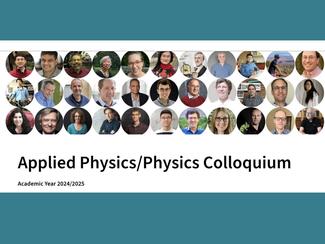
Exploring quantum frontier with programmable atom arrays
Hewlett Teaching Center, Rm. 201
BONUS: Shoucheng Zhang Memorial Reception & Portrait Unveiling
4:30 p.m. - 6:00 p.m.
3rd Floor Lounge, McCullough Building (476 Lomita Mall)
A broad effort is currently underway to develop quantum computers that can outperform classical counterparts for certain computational or simulation tasks. Suppressing errors is one of the central challenges for useful quantum computing, requiring quantum error correction for large-scale processing. However, the overhead in the realization of error-corrected “logical” qubits, where information is encoded across many physical qubits for redundancy, poses significant challenges to large-scale logical quantum computing. In this talk, we will discuss the recent advances involving programmable, coherent manipulation of quantum systems based on neutral atom arrays excited into Rydberg states, allowing the control over several hundred qubits in two dimensions. In particular, we use this platform to explore quantum algorithms with encoded logical qubits and quantum error correction techniques. Using this logical processor with various types of error-correcting codes, we demonstrate that we can improve logical two-qubit gates by increasing code size, outperform physical qubit fidelities, create logical GHZ states, and perform computationally complex scrambling circuits using 48 logical qubits and hundreds of logical gates. Finally, recent advances towards realization of deep circuit computation and quantum simulations will be discussed. These results herald the advent of early error-corrected quantum computation, an exciting frontier in science and engineering, enabling new applications and inspiring a shift in addressing both the challenges and opportunities that lay ahead.
Bio: Mikhail Lukin received his Ph.D. degree from Texas A&M University in 1998. He has been on the faculty of the Harvard Physics Department since 2001, where he is currently the Joshua and Beth Friedman University Professor, as well as a co-Director of the Harvard Quantum Initiative in Science and Engineering and a co-Director of the Harvard-MIT Center for Ultracold Atoms.